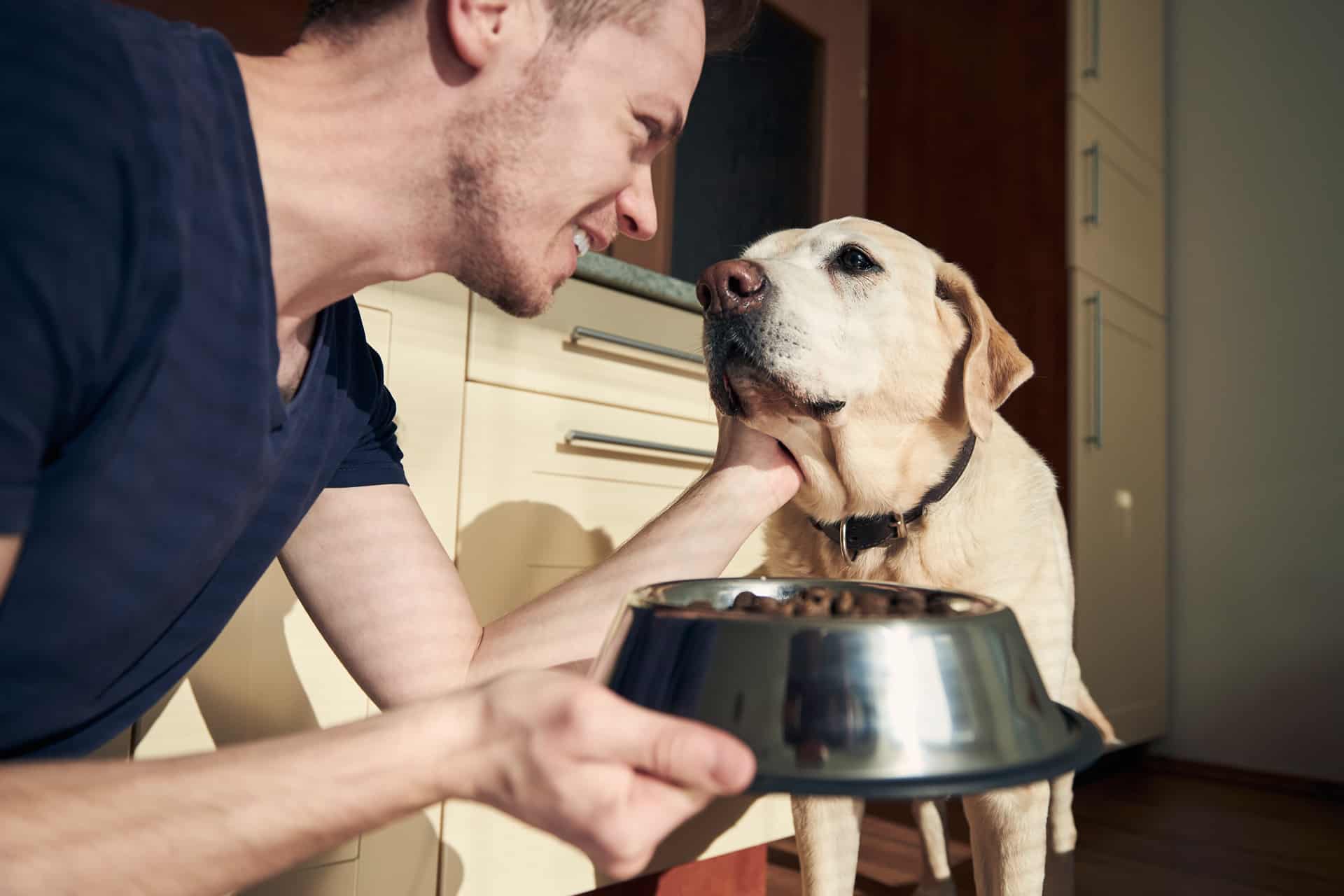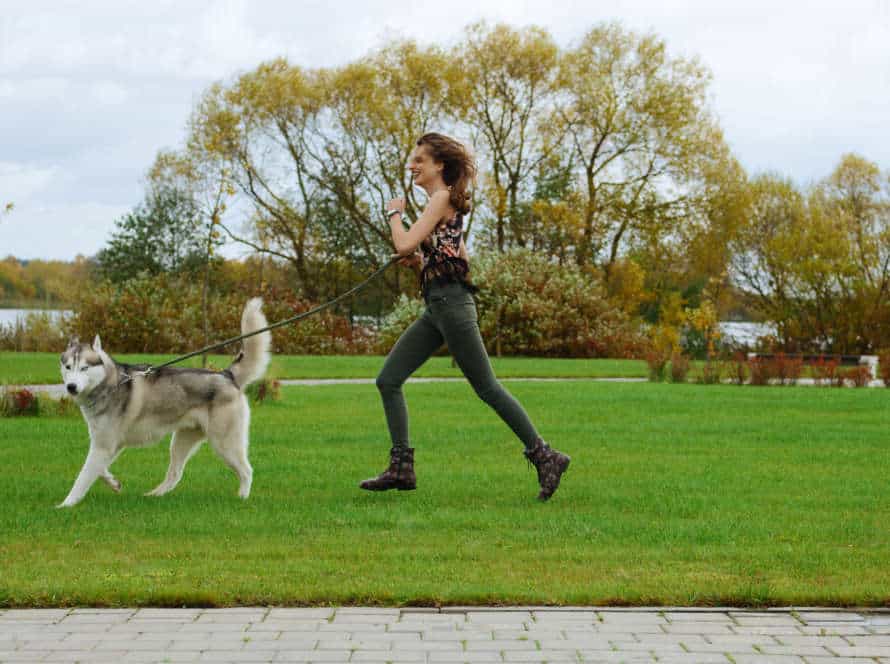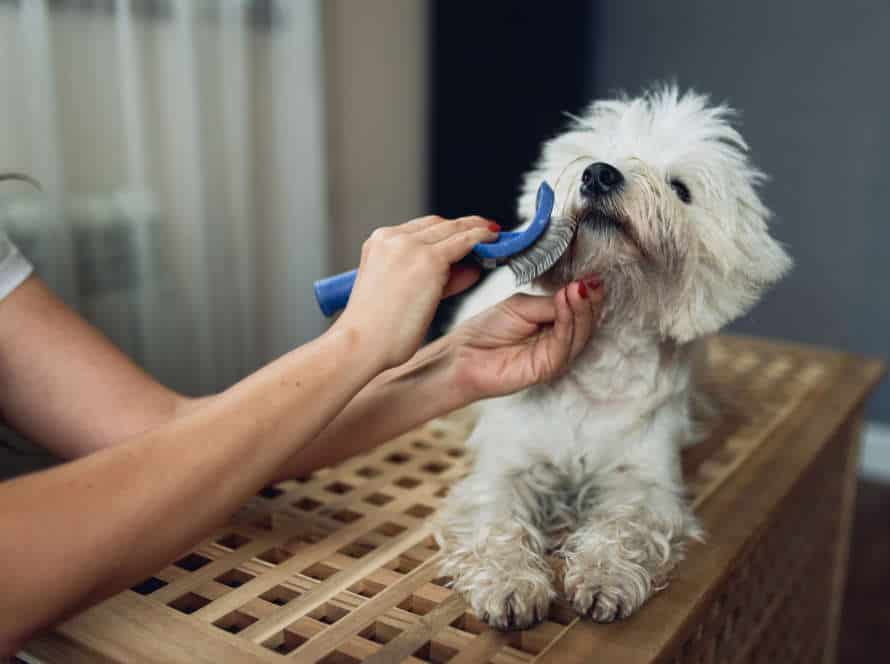How to Keep Your Adult Dog Healthy with Proper Nutrition
Adult dogs need proper nutrition to stay healthy and avoid health issues. Here’s what to do:
- Choose a high-quality dog food with essential nutrients like protein, carbs, fat, vitamins, and minerals.
- Don’t give table scraps or human food – this can lead to obesity and other problems.
- Make sure your dog always has access to clean water.
- Measure food portions – don’t overfeed or underfeed.
- Monitor weight and adjust diet accordingly.
- Consider adding supplements, like omega-3 fatty acids, probiotics, and glucosamine.
- Ask your vet for the best diet for your dog’s breed, size, and age.
Pro tip: Nutrition’s important, but not the only thing to keep your dog healthy. Also give regular exercise, vet check-ups, and plenty of love and attention.
Understanding Your Adult Dog’s Nutritional Needs
Adult dogs need a balanced diet to stay fit and energetic. They need different nutrients than puppies and old dogs. To guarantee your adult dog is getting the right nutrition, you should know what they need. Let’s take a look at what nutrients an adult dog needs and how to give them.
General nutritional requirements for adult dogs
Owning a dog comes with the responsibility of ensuring they have the right nutrition. Adult dogs need proteins, fats and carbohydrates. Proteins help build muscles and repair tissues. Fats provide energy, insulation and support cell growth. Carbs give energy and aid digestion. As per AAFCO, adult dogs need a diet that has 18% proteins and 5% fat. However, this balance may vary depending on age, breed, weight and activity.
Vitamins and minerals like calcium, phosphorus, A, and E are also needed for strong bones, vision, immune function, and a glossy coat. Check with your vet to create a nutrition plan tailored to your dog’s needs.
How to determine the right amount of food
It’s essential to find the right food amount for your adult pup. Consider their age, breed, weight, activity level and health when deciding. To do so, here are 4 easy steps:
- Ask your vet what weight and body condition score your pup should be.
- Pick a quality food for their age, breed and activity level.
- See the feeding chart on the food packaging for their weight.
- Change the portion size if needed to keep them healthy.
Remember – provide plenty of fresh water and don’t overfeed treats or scraps. Pro Tip: Monitor their weight and body condition often and speak to your vet if there are any changes.
Consultation with your veterinarian
Consulting your vet is essential for understanding your adult dog’s nutrition needs.
They can advise the correct mix of macronutrients, like protein, fat and carbs, plus micronutrients like vitamins and minerals. They will also tell you the right portion size and feeding frequency, based on age, breed, activity and health.
Plus, a vet can help you pick the correct commercial food for your pet’s needs. This includes weight, age, breed and medical issues.
Finally, regular check-ups with your veterinarian can keep your adult dog healthy and content with their unique dietary needs.
Building a Healthy and Balanced Diet for Your Adult Dog
Achieving a healthy and balanced diet for your adult dog is key to keeping them happy and healthy. To provide your pup with the right nutrition, it is essential to understand the nutritional needs for grown-up canines.
Let’s further investigate how to make a well-rounded and nutritious diet for your adult pup!
Choosing the right type of dog food – kibble, canned, or homemade
Choosing the right dog food is key for a healthy, balanced diet for your adult pup. Kibble, canned, and homemade options all have their own pros and cons. So consider your dog’s individual needs and preferences.
Kibble
The most common type of dog food. It’s convenient and shelf-stable. Plus, chewing helps promote dental health by scraping away plaque and tartar. But, watch out. Some kibble brands can be high in fillers and low in protein. Read the label!
Canned
Highly palatable and easy to digest, so it’s great for dogs with dental problems or picky eaters. But, it can be expensive and has a short shelf life once opened.
Homemade
Perfect for pups with food allergies or sensitivities. You control the ingredients and quality. Just make sure to prep and know canine nutrition for a balanced diet.
Pro Tip: Talk to your vet for the best type of food and feeding schedule for your adult dog.
Incorporating protein sources such as meat, fish, and poultry
Including proteins like meat, fish, and poultry in your adult dog’s diet is essential. Here’s how:
- Meat: Pick lean cuts – like chicken, turkey, beef, and lamb. Cook the meat throughly and skip the onion, garlic and any other harmful ingredients for dogs.
- Fish: Fish is a great source of omega-3 fatty acids. These support brain development, immune system health, and healthy skin and coat. Offer cooked fish twice a week – raw fish can carry parasites that can harm your pet.
- Poultry: Chicken and turkey are great sources of protein and low in fat. Avoid heavily processed poultry, as that can reduce its nutritional value.
But, don’t forget moderation. Too much protein can damage kidneys. Check with your vet to find the right balance of protein for your pet.
Including complex carbohydrates for energy
Complex carbohydrates can provide adult dogs with the energy they need to stay healthy. Whole grains like brown rice and wheat are great sources of these carbs. Veggies like sweet potatoes, peas, and carrots are further sources of carbs – plus fiber and micronutrients!
When selecting dog food, look for high-quality brands that include complex carbs. These slow-release energy sources keep dogs fuller for longer. Plus, complex carbs aid in maintaining blood sugar levels and combating obesity-related illnesses.
For optimal health, it’s recommended that dogs eat a balanced diet of whole foods. This includes proper levels of protein, carbs, vitamins, and minerals.
Adding vegetables and fruits to provide essential vitamins and minerals
Adding veg and fruit to your adult pup’s diet is a great way to provide essential vitamins and minerals. This will ensure their optimal health and long life! Here are the benefits of this diet:
- Healthy digestion – Veg and fruit are full of fiber, which helps them digest properly and have regular bowel movements.
- Better immune system – Vitamins and minerals in veg and fruit help boost their immune system and protect them from illnesses and infections.
- Stay hydrated – Veg and fruit are a great source of water, which keeps them hydrated and helps avoid urinary tract infections.
Some safe examples are carrots, sweet potatoes, green beans, broccoli, bananas, apples, and blueberries. Start with small amounts when introducing new foods to avoid any stomach upset.
Pro tip: always talk to your vet before making big changes to their diet.
Avoiding Common Nutritional Problems for Adult Dogs
It is critical to keep your adult pup healthy and fit by giving them a balanced diet. But, many dog owners are not aware of the right type of food or the right balance of nutrients. To avoid nutritional problems, let us look into how to recognize them.
Obesity in adult dogs and how to prevent it
Obesity is a common issue in adult dogs. It can cause serious health issues, like joint problems, diabetes, and heart disease. But, owners can take steps to avoid it. Here are some tips:
- Measure portions. Use a measuring cup to give the right amount of food. Follow the feeding guidelines on the label and adjust the serving size.
- Choose high-quality food. Look for food with protein and low calories. The first ingredient should be real meat. Avoid ingredients like corn, wheat, and soy.
- Limit treats. Treats should be no more than 10% of the diet. Opt for low-calorie treats or veggies like carrots and green beans.
- Get exercise. Walks and other exercise can help burn off calories and keep the dog’s weight healthy.
Pro tip: Get regular vet check-ups. This can help catch weight gain and health issues early.
Nutritional deficiencies and how to avoid them
Nutritional deficiencies in dogs can cause weakened immune systems, brittle bones, and organ damage. Fortunately, you can keep your adult dog healthy. Here are some tips:
- Opt for high-quality commercial dog food that contains quality proteins, carbs, healthy fats, vitamins, minerals, and antioxidants.
- Skip table scraps: they are often high in calories, salt, and fat.
- Treat your pup with fresh fruits and veggies, they are packed with vitamins and low in fat.
- Chat to your vet to see if your pup needs a specialized diet or supplement.
- Make sure your dog has plenty of fresh drinking water.
Food allergies and intolerance and how to identify them
Identifying food allergies and intolerance in your adult dog is important. It can prevent potential nutrition problems that could cause health issues. Here’s how to spot them:
Food Allergies: Look out for symptoms like itching, ear infections, vomiting, diarrhea and skin irritations. An elimination diet is usually the best way to find the allergen.
Intolerance: Some dogs may be intolerant to certain foods. This can lead to digestive problems like flatulence or abdominal discomfort. See a veterinarian if you spot these signs after your dog’s meal.
Be aware of your dog’s food. Introduce new foods slowly to stop any allergic reactions or intolerance. Plus, read the ingredient labels before feeding your dog any commercial food or treats.
Pro tip: For a healthy diet, choose dog food with high-quality proteins, carbs and healthy fats. These will give the necessary nutrients without triggering food allergies or intolerance.
Incorporating Special Dietary Needs for Adult Dogs
Aging dogs have different dietary needs. Keep an eye on your adult dog’s nutrition, to ensure it gets the right nutrients. Adding special dietary needs for adult dogs can help improve their quality of life. In this article, we explore what special dietary requirements adult dogs may have and how to meet them.
Adult dog’s dietary needs according to their breed and size
Feeding adult dogs is key to their wellbeing. Different breeds and sizes need different diets.
- Small breed dogs: Faster metabolism means they require more frequent meals with protein, fiber, and healthy fats.
- Medium breed dogs: Balanced diet with not too many calories. Need protein, vitamins, minerals, antioxidants for muscle mass and health.
- Large breed dogs: High in protein and fat for muscle and bone development. Plus, ingredients for joint health and to prevent bloating.
- Senior dogs: Lower energy needs and lower fat, calorie intake. Plus, ingredients for joint health, urinary tract health, and cognitive function.
Grain-free or hypoallergenic diets can benefit adult dogs with allergies or specific health concerns.
Meeting the nutritional requirements for pregnant or nursing adult dogs
Meeting nutritional needs for pregnant or nursing adult dogs is essential for their health and their puppies’ health. Here are some tips:
- Provide a nutritious diet with lots of protein, minerals, and vitamins.
- Split meals into smaller portions throughout the day to prevent weight gain.
- Include supplements like folic acid, iron, and calcium for reproductive health and fetal development.
- Say no to potentially harmful foods like alcohol, caffeine, and raw or undercooked meat.
- Talk to a vet to find the right diet and supplements for your pregnant or nursing dog.
Nutritional needs of adult dogs with certain medical conditions
Adult canines with certain medical ailments require special meals to meet their unique nutritional needs. For instance, dogs with kidney disease may need diets with limited protein & phosphorus to reduce the strain on their kidneys.
Here are some tips to add special dietary needs for adult dogs:
- Consult with your vet to identify your pup’s exact medical needs & dietary restrictions.
- Look for dog food brands that provide specialized meals for special medical conditions.
- Search for dog food with high-quality protein sources that are easy for your dog’s body to digest.
- Include supplements if necessary to support your dog’s overall health, like fish oil for skin & coat health or probiotics to help digestion.
- Check your dog’s health & adjust their diet as needed in consultation with your vet.
Feeding Your Adult Dog in a Healthy Manner
It’s essential to provide an adult dog with a balanced and nutritious diet. The Association for Pet Obesity Prevention (APOP) reports that an astounding 54% of adult dogs in the US are either overweight or obese. A suitable diet including quality dog food can help keep your adult dog fit and reduce the risk of health issues. Let’s investigate how to feed an adult dog correctly.
Portion control and feeding schedules
Feeding your adult pup properly can have a great effect on their health and well-being. Portion control and feeding schedules are super important. Here are some tips:
- Use a measuring cup to give your pup the recommended amount of food for their weight and activity level.
- Avoid free-feeding and table scraps. This can cause obesity and digestive issues.
- Establish a consistent feeding schedule, with two meals a day, 12 hours apart.
- Also, pay attention to your pup’s body language and cues. Adjust portions accordingly.
- Ensure adequate hydration. Have fresh water available at all times.
Choosing the right feeding method and location
Feeding your adult dog healthily requires the right feeding method and location. This can have a huge effect on their eating habits and health. Here’s some advice:
Feeding Method:
- Have regular meals to help your pup set a routine and keep a healthy weight.
- Free feeding: provide food continuously and let them eat as much as they want. Not recommended if your dog is prone to obesity or digestion problems.
- Use mealtime to teach essential commands and behaviours.
Feeding Location:
- Pick a quiet spot away from busy areas with no loud noises or distractions.
- Feed in the same place each time to create a routine.
- For large dogs and those with digestion issues, an elevated bowl may be helpful.
Pro Tip: Talk to a vet and make a personalized diet and feeding plan that fits your dog’s needs.
Avoiding feeding mistakes and their consequences
It’s key to feed your adult pup in a healthy way to keep them in tip-top shape for the long haul, but there are several common feeding errors to dodge. Here’s a list of no-nos when it comes to adult pup chow:
- Overfeeding: Too much food can lead to weight gain and other health concerns down the line.
- Neglecting meals: Missing meals can have a damaging effect on your pup’s metabolism, causing digestion troubles and unhealthy eating habits.
- Table scraps: Though tempting, table scraps may cause gastrointestinal problems and even pancreatitis.
- No label reading: Not thoroughly reading labels can mean your pup won’t get the nutrients they need, so always check before you purchase.
Pro tip: For a healthy and nourished adult pup, select quality dog food that is tailored to their age, size and health needs. And remember to give them portion sizes based on their individual requirements, plus monitor their weight often to ensure they’re maintaining a healthy weight.
Frequently Asked Questions
Q: What type of food should I feed my adult dog to ensure they maintain good health?
A: Your adult dog should be fed a nutritionally balanced diet that provides all of the necessary vitamins, minerals, and nutrients. This can include both commercial dry and wet dog food options or a homemade diet consisting of lean proteins, vegetables, and carbohydrates.
Q: How often should I feed my adult dog?
A: Most adult dogs should be fed two meals per day, once in the morning and once in the evening. However, this can vary based on your dog’s size, age, and activity level. Consult with your veterinarian to determine the best feeding schedule for your adult dog.
Q: Can I give my adult dog human food as a treat?
A: While some human foods can be safe for dogs in moderation, it’s important to stick to dog-friendly treats specifically formulated for their nutritional needs. Human food can also contain ingredients that are toxic to dogs, such as onions and chocolate.
Q: Should I use supplements to ensure my adult dog is getting all of the necessary nutrients?
A: Unless your veterinarian recommends a specific supplement, most adult dogs can get all of the nutrients they need from a well-rounded diet. Over-supplementation can lead to health problems, so it’s important to consult with your vet before adding any supplements to your dog’s diet.
Q: How can I tell if my adult dog is overweight?
A: A visually obvious sign of an overweight dog is an inability to see their waistline or feel their ribs. Additionally, if your dog is having difficulty moving or breathing or has a consistently low energy level, these can also be signs that they are carrying excess weight.
Q: How can I safely transition my adult dog to a new diet?
A: Transitioning your dog to a new diet should be done gradually over a period of one to two weeks. Start by mixing a small amount of the new food with their current food and gradually increase the amount of new food over time. This allows for a smoother transition and minimizes the risk of digestive issues.







